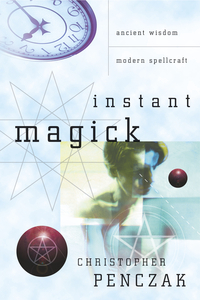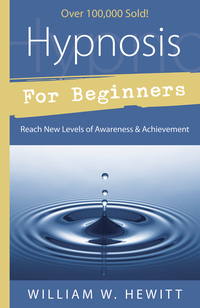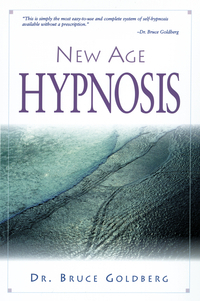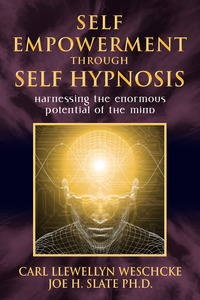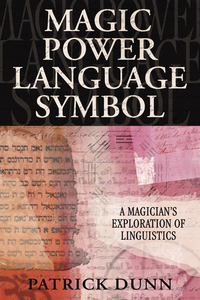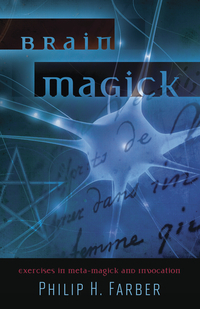Llewellyn Publications's Blog, page 81
August 22, 2013
Art of Tarot 4
In this series, we are taking the time to smell the roses, which for tarot lovers often means taking the time to really appreciate a single image of tarot art.
Today we look at the 3 of Skulls from the Tarot of Vampyres by Ian Daniels. You can see more HERE.

It is no doubt because I am a spinner that I love this card. With the skull and spider web, it makes me think not only of the importance of honing your craft, of always trying to be better, but also of the ultimate impermanence of our lives and how maybe we can live on through our work. And so, what will be our legacy? Seems like it is worth working at and making it the best that you can. Also, with spinning, like tarot, you have to learn the craft of it but to be really good, you have to train your muscles to do the work while letting your mind let go so that the magic and beauty of the universe can flow through you. It is a delicate balance but after you’ve experienced it, everything else seems clunky and uninspired.
August 20, 2013
Going Natural
Readers, please enjoy this guest blog post by Dorothy Guerra, author of The Yoga Birth Method.
What exactly is “natural,” anyway? With so much talk about green living, eco-friendly consciousness, and clean eating, we need to rethink the way we do absolutely everything to actually participate 100% in this new world way. Which brings me to my thoughts on Natural Birth. When a woman chooses to go “natural” in childbirth is she making a better choice for the world as a whole? In my opinion, the answer is YES! 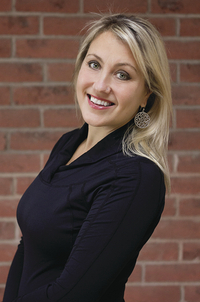
Here’s why: when a woman eliminates drugs during childbirth, she stays more present and allows the pain to manifest—allowing her to better participate in the birth and remain connected. She is participating in free choice when she decides against any unnecessary medical intervention. She is liberated and empowered when she is free to move around and facilitate her own birth experience. All those feelings of power, self-control, and freedom actually give hope to a new birth order, and every woman that shares her birth story enlightens another women to do the same.
Through this process women begin to take back their right to enjoy their bodies, engage in labor with their babies, and feel good about childbirth. They eliminate the fear of pain, the attachments to pain-reliving drugs, and the security blanket of medical births. Birth is beautiful, and women were meant to channel life energy through their bodies and feel good about it. Isn’t this the same as respecting a clean green earth?
Our thanks to Dorothy for her guest post! For more from Dorothy Guerra, read her article “Having a Natural Childbirth Requires a Plan.”
The Superficiality of Intentionality
There are several books and teachers who either imply or explicitly state that intention is the key to magick. The entire basis of the Law of Attraction as popularized in The Secret is that intention is everything. This concept states that if you have an intention and focus on it strongly, you attract to you the heart of your intention. One of the most popular books in history virtually says this in its title: Think and Grow Rich.
I have encountered this same, “intention is everything” attitude among Pagans and ceremonial magicians. I have attended many hundreds of rituals where we are instructed to “write our intention on a piece of paper” which is then burned or returned to us to be collected in a pile or thrown out with the trash. From what I’ve seen, there is often great joy from these “intention is everything” rituals but little magickal success.
Intention Isn’t Everything
Achieving goals magickally or non-magickally is similar to following a map. You are at point A where you lack your goal. You want to get to point B where you have your goal. Having the intention of obtaining the goal is the design of the map for getting from point A to point B. Do you see the problem with this?
Maps are not the real world. They are merely representations of the physical world. Having a map and using your fingers on it to trace your path ten million times will get you nothing other than a worn-out map. To achieve the goal you have to move from the map to the real world and do something!
There is a story of an old man. Broken by years of back-breaking work, he is impoverished, but not for lack of a good salary. He has given most of his earning to the poor and spent any spare time physically helping at centers for the homeless. Nobody knew of any man more dedicated to helping the needy than he.
But the bite of age and the decades of hard labor had taken its toll. Every move caused his joints to hurt and the cold weather would cause him massive pain. So one day, he began to pray. “God, I have spent my entire life helping the needy. I have little for myself and have never asked for anything. But now, I have to make one slight request. I can’t work much any more, and to continue helping the poor I need some money. So please, let me win the lottery.”
The lottery drawing was held and he didn’t win. Again he prayed, “It’s not for me. It’s to help me aid others. I’m not looking to take anything away from others, I just want to be able to help. Please, let me win the lottery.”
The next lottery drawing was held and he didn’t win. Again he prayed, “I don’t understand. I’m just trying to help others. Why won’t you give me even a little help?”
Suddenly, his small apartment seemed to fill with light. Thunder boomed, shaking the entire building. And then a voice that seemed to come from nowhere and everywhere explodeed into his hearing, saying, “Buy a lottery ticket.”
Okay, I will grant that this is far from the best joke in the world, but its point fits what I’ve been describing. The old man has the intention of winning the lottery and using the money to help others. But there is no way he can obtain his goal unless he does something to achieve it, in this case, he has to buy a ticket.
Christopher Penczak is one of my favorite authors and I’m lucky enough to call him a friend. He recently made a posting on this subject. What he points out—correctly, in my opinion—is that intention is an important factor for the success of magick, but it is not the only factor.
Christopher Penczak
I do believe in the power of intention, of aligning your will with the will of the universe to manifest your magick. Without intention, you[r] magick doesn’t seem to work…I think my evolving hesitancy to teach “Intention is Everything” is observation over the years of friends, peers and students who use that as an excuse to lack in technique… I do believe that Clear Intention, Step 1, trumps all, because it is the building block, but you need more than that to be successful.
—Christopher Penczak
I have to say that I agree 100% with this. The clearer and more specific your intention, your magickal goal, the more likely your success. But that is only the start. You then have to follow up and actually do something!
Coué was Cou-wrong
Émile Coué (1857–1926) was the father of the modern use of positive affirmations. His most famous affirmation was, “Every day in every way I’m getting better and better.” His idea—and it is a practice still followed by many people—was to repeat the affirmation and (by the Law of Attraction) it would bring you what you wanted.
In and of itself, this is garbage. Affirmations, by themselves, bring nothing. Affirmations, as triggers to action, can be powerful. They are verbalized intentions, and as Penczak wrote, the Clear Intention is “Step 1″ in achieving your goal.
I can have the intention to shoot the basketball into the net from center court, but I really suck at basketball, so it’s not likely it’s going in with just my intention. I never practice. I have no real natural skill. It’s just not my thing, even if I had the intention…
Too real world for you? Are you thinking, well, yes that how talents and skills work, but not magick! But isn’t magick a skill to be learned and practiced? Is not magick described not only as a science, but an art? Don’t all artists, no matter their natural talent, also practice, be it graphic, writing, music, or dance based art?
—Christopher Penczak
On the Radio
There are two parts to the signal you get on your radio. The first, known as the “carrier,” is the energy itself. It vibrates at a certain frequency. The second, which modulates that energy, contains the words and music you actually hear on the radio. For me, this is a great analogy as to how magick work.
The words or music or analogous to the intent of your magick. If there is no intent, there are no words or music ready to be heard. And if there is no carrier—no energy for sending out the words or music—the best sound and statements are not broadcast and cannot be heard. The stronger the carrier, the farther the intent can go. Without the intent, all the energy is useless. Without the energy and action, the intent cannot be shared and is effectively meaningless, irrelevant, and non-existent. Intent is vital to magick, but intention is not everything. To say so is to look at magick in a very superficial way. At the same time magick tends not to be successful without a clear and specific intention or magickal goal.
Magick in the Witchcraft traditions is to bend and shape, both the universe and the self. We learn to flow with what is already happening and work with it, not fight against it. Intention must be allied with this flow, and the proven practices of the past, along with the effective innovations of the present in terms of technique, will guide us. We must learn to prepare ourselves beyond intention, and wield this important tool, this force, with our will, common sense, technique, and discipline to forge our future.
—Christopher Penczak
I would say this applies to all forms of magick, not just magick in the Witchcraft traditions. It’s why learning how to work with energy is vital to magick. It’s why discovering various rituals is important.
Instant Magick
Today I received an email that read, “…can you tell me a chapter in your book that can tell me how to Give me and my 6 friends… the power to transform with watches/bracelets into the warriors of my [recent] dream?”
Yes, I realize this sounds like something out of the Power Rangers, however I never assume that people writing me are joking or trying to make fun of me. So I responded this way:
Thank you for your email.
Real magick is not like you see in the movies. It requires work and practice. You develop skills over time.
No single chapter in any book can give you that information. Rather you start studying a system and eventually develop the skills and knowledge to understand how to accomplish your goals.
If someone has an unclear intention and (poorly) reads a ritual out of some book while waving a wand, it is highly unlikely that he or she will achieve the goal of their intention. All they’re doing is mumbling and wand waving. Magick is more than intention, more than just repeating some poorly-understood or pronounced words.
Christopher understood this when he wrote Instant Magick. The title seems to imply that you could pick up his book and instantly perform effective magick.
In reality, it shows you how to learn the aspects of magick and be able to put them instantly into play whenever you need them, without the use of elaborate spells and paraphernalia. If you haven’t read this book yet, it’s really worth your time.
Art of Tarot 3
In this series, we are taking the time to smell the roses, which for tarot lovers often means taking the time to really appreciate a single image of tarot art.
Today we look at the 10 of Cups from the Legacy of the Divine Tarot by Ciro Marchetti. You can see more HERE.

Maybe it is because I have a dog, but seeing this card always makes me feel cozy and happy. There is a settled, comfortable contentment here that I think really captures the feeling of the 10 of Cups.
August 19, 2013
The Myth of the Will
For pure will, unassuaged of purpose, delivered from the lust of result, is every way perfect.
—The Book of the Law, Chapter I, Verse 44
Willpower is the key to success. Successful people strive no matter what they feel by applying their will to overcome apathy, doubt or fear.
—Dan Millman, author of Way of the Peaceful Warrior
Dr. Walsh: So, the Slayer.
Buffy: Yeah, that’s me.
Dr. Walsh: We thought you were a myth.
Buffy: Well, you were myth-taken.
—Buffy the Vampire Slayer, episode entitled “A New Man”
An absolutely phenomenal number of books, bloggers, writers, speakers, and teachers tell us it is important to strengthen our wills. If there is something lacking in our lives, it is because our wills aren’t strong enough to drive us to obtain it. When we do achieve something, it is because we have somehow made our wills strong enough to make us do what was necessary to obtain it. We are told to strengthen our willpower, find our True Wills, and we’ll live completely fulfilled, successful, and happy lives.
After decades of studying, learning, practicing, and teaching occult techniques, I’ve come to a conclusion that is outside the box, a box in which we find most occultists (including, formerly, me), mystics, and people following a spiritual path.
The idea that strengthening the will is important to create a successful, superior person is not a presupposition limited to occult philosophy and practice. It has had an enormous impact on Western civilization and is found in numerous traditions of Western philosophy, going back at least to the time of the ancient Greek city-state of Sparta, over 2,500 years ago.
I remember a story from Plutarch about some young men in ancient Sparta where supposedly stealing was okay, but getting caught would result in punishment. One of the young men had gone out at night and stolen a fox. In the way I was told the story, he brought it back, but the camp was roused and all the young men were forced to stand in line in order to reveal who had left. Giving up the rule-breaker would have been seen as a weakness, so none did. Plutarch, in The Life of Lycurgus, wrote, “The boys make such a serious matter of their stealing, that one of them, as the story goes, who was carrying concealed under his cloak a young fox which he had stolen, suffered the animal to tear out his bowels with its teeth and claws, and died rather than have his theft detected.” He said nothing as the wild animal clawed at him. He was honored for not shouting out from the pain. What willpower!
Well, I don’t believe the story. Why was somebody keeping a fox in the first place? Why did this unknown person keep the fox in such a poor way that nobody noticed when it was stolen? In fact, why would anyone bother to steal a fox? That seems like an incredibly stupid thing to steal. And really, as the fox was tearing into the boy’s guts, did nobody notice the pools of blood forming at the boy’s feet? The story is highly unlikely, and I would contend it was actually a myth stressing a belief in the importance of willpower. That myth has become part of the Western psyche. We don’t question it, we just accept it as a truism. “Everyone knows that if you want to improve yourself, you have to improve your willpower!” It’s a powerful and enduring myth.
And, as Buffy said, we are “myth-taken.”
The Real Power of Magick
The myth of the power of the will is so grossly overstated and believed in that we should all (yes, I’m including myself,) be embarrassed. Let’s step out of our tiny boxes and presuppositions and forget that “willpower is all important” is a truism that must be accepted. If, for a moment, we just assume that the will isn’t the most important tool of the magician, what is? Where does the human aspect of the deepest power of magick really come from?
You’ve probably heard of the following scenario many times. A person standing in front of a refrigerator. “I shouldn’t have another piece of pie. I should have the willpower to say, ‘No!’ to the pie. But a part of me wants it so badly…”
And you probably also know that most of the time, that piece of pie (or ice cream, or the purchase of some gadget, etc.) wins out. But why? Is it because our wills are weak, or because there is something far stronger? And if there is something that is part of us that is so much stronger than the will, shouldn’t we harness that and apply it to magick? If this power is real, what could it be? The answer comes from one of the greatest minds that ever lived:
I am enough of an artist to draw freely upon my imagination. Imagination is more important than knowledge. Knowledge is limited. Imagination encircles the world.
―Albert Einstein
Our pie eater, while standing in front of the refrigerator, is imagining what it’s like to eat that pie. The person is imagining how it will taste, the satisfaction and the pleasure of eating it. As Einstein also said, “Logic will get you from A to Z; imagination will get you everywhere.” In a battle between the will and the imagination, the imagination always wins. It is naturally far more powerful than the will.
“Always” is a strong claim. Aren’t there many people who will imagine the pleasure of eating the pie and use their willpower to not eat it?
It’s true that many people won’t eat the pie, but that’s because their imaginations are considering something else, such as how they’ll feel not gaining weight, knowing they’re in control of their desires, etc. That image becomes stronger than the image of immediate gratification. The imagination always wins. Stronger or more important imagined images overpower weaker ones.
At this point you may be thinking, “Okay, so why don’t we make our wills even stronger than the imagination? Couldn’t that be seen as a goal of magickal training?” Perhaps. But let’s look at a quote from another person, the artist Pablo Picasso. He said, “Everything you can imagine is real.”
And that is the key. Imagination isn’t just “make-believe.” Real imagination is the process of allowing the mind to create and then make manifest anything we desire. Visualization is the use of the imagination. Designing magickal rituals uses the imagination. Seeing pentagrams and archangels while performing rites such as the Lesser Banishing Ritual of the Pentagram involves using the imagination.
The will is a slave to the imagination.
Imagination is the key to the power of magick.
Learning to control the imagination
—without limiting it—
gives us ultimate control of the will.
If we abandon the futile quest to master and empower the will, and instead see if we can discover ways to master and empower the imagination, we can immediately be struck by this regression: to control the will, we must control the imagination. One thing leads to another. This, however, leads us to wonder, does this regression go back even further? Is there something else we can seek to control that will give us control over the imagination?
Escaping the Box
The clarity is devastating. But where is the ambiguity? It’s over there in a box.
—John Cleese as an art critic in Monty Python’s Flying Circus
The philosophical movement known as The Enlightenment was a driving force that helped the Western world finally climb out of the pit known as the Dark Ages. One of its primary concepts is that only the physical world is real. This allowed for more advances in science than perhaps any other development in human history. But it also created a box. Everything (including ambiguity) must fit in the box. If something doesn’t fit into our materialistic box we need to denounce it and not believe it. Debunkers and pseudo-skeptics love this box and go one step further, they don’t want others to believe there can be anything outside of the box, either.
The problem with this is that by their very nature, boxes have boundaries and are limiting. Neuroscientists can show images of the brain’s neurons firing when we have an imaginative thought, but they cannot show us the imagination any more than they can show love or patriotism. The imagination, then, doesn’t fit into the box of the debunkers. So if the imagination isn’t part of the brain, where is it? And if it is part of something else, does that something else control the imagination? And if it controls the imagination we need to learn to control that aspect of ourselves in order to be masters of the imagination and of the will.
Help! My Brain is Splitting!
According to a recent study, the concept of people being left-brained or right-brained isn’t backed by facts. Oh, it is true that different people have different sets of qualities, it’s just that they’re not linked to one or the other side of the brain. Sorry, this is another myth busted. Or is it?
If we stop looking at the concept of left-brained/right-brained as a physiological fact and instead approach it as a paradigm for understanding how people function, it still makes perfect sense. It’s a model or a map that allows us to understand how people function. That’s all.
Often, people equate the mind with the physical brain. However, they are two different things. For proof of this, time and again people who are declared dead (i.e., no breathing and no brain functioning) are restored to life, not just after a few moments but often after long periods. I like to consider the brain as simply being the physical manifestation of the non-physical mind.
The brain is unitary. It is only looked at as being divided by hemispheres to better understand how people function. Similarly, the mind is unitary, although we have a model where we divide the mind into two parts, the conscious and the unconscious or subconscious. The conscious part of our mind deals with aspects on the lower astral and physical planes. The unconscious deals with the higher levels of the astral plane.
In a previous post I explained how what we create on the astral plane must manifest on the physical plane. In a following post I showed how this can actually prevent our desired magickal results from occurring. Therefore,
The will is associated with the conscious.
The imagination is associated with the unconscious.
So the key to improving and controlling the imagination, which in turn controls the will, guiding it to do our bidding, is to control the unconscious mind. Unfortunately, that’s easier said than done! There is a barrier between the conscious and unconscious (remember, this is just a model to help in understanding) called the “critical factor” that prevents us from reaching the unconscious with instructions. It logically critiques everything that comes through the senses and conscious. If you want to create health, an education, a new car, etc., its programming which, for example, may say, “it cannot be done,” can prevent the message from getting into the unconscious and the imagination. Somehow, we need to be able to get around the critical factor.
There are several ways to do this.
Conscious repetition of desires in the form of positive affirmations can accomplish this, but it can take a long time. Most people give up before the repetition can have its effects.
One of the aspects of magickal rituals that is frequently overlooked is that the most powerful rites are not merely ritual drama. Rather, they affect participants so deeply they achieve altered states of consciousness during the ritual. The combination of an effective ritual’s powerful symbolism bypassing the critical factor during this ASC means the ritual can directly affect the unconscious, resulting in triggering the imagination and bringing about manifestation.
Although certain psychoactive drugs, especially when taken during shamanic or ritual work, can also result in an ASC, the challenge is that quality and dosage can vary wildly, making a formula (take X amount of drug Y) to get a consistent result questionable at best, not to mention that in many instances possession of such substances is illegal.
And speaking of shamanism, there are a variety of shamanic techniques—chant, dance, fasting, isolation, endurance of pain/hardships, etc.— that can aid a practitioner in achieving an altered state wherein the unconscious can be directly accessed, however it is common to allow the shamanic journey to follow its own path, and while that may result in a wide variety of benefits to the practitioner, they may not be the intended benefits.
There are probably several other systems that can assist you in this, but there are two more I specifically want to mention. Hypnosis allows you to bypass the critical factor, but hypnosis and self-hypnosis are skills, and skills take time to understand, practice, and master. Many people feel that by just relaxing they are going into hypnosis. While relaxation often accompanies hypnosis, and can be used as a lead-in to hypnosis, hypnosis is not merely a form of deep relaxation. In fact, relaxation is not even necessary for hypnosis. But because many people don’t understand this, they think they’re hypnotized when they are merely relaxed. Relaxation, by itself, won’t allow you to bypass the critical factor or access the unconscious. As a result, people who only get relaxed end up assuming they were hypnotized and that hypnosis doesn’t work. In fact, hypnosis works brilliantly, they just didn’t achieve a hypnotic state or, if they did, they didn’t present instructions to the unconscious in a manner that would influence the unconscious. That’s why learning hypnosis and how to make suggestions requires skill and practice.
There are some books that can help you to learn this skill. I particularly like:
Hypnosis for Beginners, New Age Hypnosis, and Self-Empowerment Through Self-Hypnosis. These books won’t make you an expert at hypnosis or self-hypnosis overnight, but with practice you can discover what a hypnotic trance feels like to you and how to appropriately send messages past the critical factor to the unconscious and the imagination, leading to physical manifestation: magick!
Is There Another Way?
Some people don’t want to go into a hypnotic trance for any of a variety of reasons (reasons that are usually based on myths and misinformation). However, rather than spend lots of words overcoming the seemingly unlimited incorrect information and objections to hypnosis and trance, it’s easier, once again, to step outside of the box and ask, “Is there a way to directly bypass the critical factor, give appropriate suggestions to the unconscious, triggering the imagination leading to manifestation of desires enhanced by the will? Absolutely, although the beginning of codification of this system began only about forty years ago. This is the second system I want to mention, and it’s name is abbreviated as NLP.
NLP (Neuro-Linguistic Programming) is a set of skills that allows you to communicate more effectively and more persuasively. Usually, it’s seen as a means of being better at communication with others. However, it also has skills and techniques that allow your conscious to more effectively communicate your desires to your unconscious. The unconscious mind/imagination makes decisions and can be the instigator that sets things in motion. The conscious mind/will is simply the doer that does what is necessary to help manifest what the unconscious/imagination decide to create.
Note that I wrote that NLP began to be codified, not that it was invented. Almost everything in NLP was known before the concepts were created. The unique thing about NLP is that it brings a wide variety of techniques together in a comprehensible (but certainly as complex as the Golden Dawn’s teachings) system. When I was in college, I earned money doing telephone sales. One of the things I learned was the “Yes Technique.” This is the idea that if you get a person to say yes a number of times in a row, they’re likely to continue to say yes when asked to make a decision.
Salesman: Your phone number is still XXXXXXX, isn’t it?
Customer: Yes.
Salesman: And you’re still living at XXXXXXXX street, aren’t you?
Customer: Yes.
Salesman: And I know you want a stove that is safe for your family and one your friends and family will admire, don’t you?
Customer: Yes.
Salesman: So we’ll write up this order for you and have it delivered, OK?
Customer: Yes.
The idea is that it’s just easier to keep saying “yes” rather than saying “no.” In NLP this is called the “Yes Set.”
Just as this particular pattern works with someone else, NLP has techniques you can use to make changes in yourself. These are not just mental or emotional changes, they can also help you change your physical world. One of the techniques I give, working with your personal time line, is revealed in Modern Magick. Other writers, including Patrick Dunn in Magic, Power, Language, Symbol and Philip H. Farber in Brain Magick are introducing NLP concepts into magick, too.
The will and the conscious mind are definitely worth strengthening. However, their importance in magick is greatly overplayed. The real prize is working with the unconscious and the imagination. They are the true entryway to the world of magick.
I start trying to stay unconscious. The problem with this is that no amount of willpower can change the reality.
― Lauren DeStefano, Fever
Tis in ourselves that we are thus or thus. Our bodies are our gardens to the which our wills are gardeners.
― William Shakespeare Othello: Act 1, Scene 3
* * *
Thursday, August 29, 2013
8:00 p.m. Eastern——5:00 p.m. Pacific
Live Interview with me on Aphrodite’s Kitchen
Tune in and listen: www.paraencountersnetwork.com
Next Thursday, the 29th, I’m scheduled to be talking with hosts Anita Perez and Tidal Millar of Aphrodite’s Kitchen. Among various topics we’re going to be discussing is Tantra as a complete spiritual system. Even though most people think Tantra is just “that sex stuff,” it’s actually a full Pagan system that has been practiced and evolved for thousands of years. To find out about real Tantra, be sure to click on the link above and listen in! Oh, we may get into a bit of Tantric sexuality, too.
August 16, 2013
Naming the Angels on the Head of a Pin
About twenty years ago, when any article about Apple (then Apple Computer) referred to the company as “beleaguered,” I was an active member in a users’ organization known as the Los Angeles Macintosh Group. I wrote some articles for LAMG’s journal, I attended their meetings, and I participated on the forums on their internet site. Note that I didn’t call it a “website” because it wasn’t part of the now ubiquitous World Wide Web which was still growing and was not dominant at that time. Most people today think of the internet and the World Wide Web as the same thing, but actually, the Web simply uses the internet as a means of interconnecting millions of sites. Back then there were different types of forums and sites such as the Usenet and its tens of thousands of Newsgroups, Internet Relay Chat (IRC), etc. They’re still around, but today most people are unaware of them.
In fact, it’s possible to use the internet and not be linked to the Web at all. This was the case with LAMG, and to gain access to their site you had to use a special application. I don’t know if the organization still exists. It does have a website that consists of two pages, but as of this writing, the ownership of the group’s URL is going to expire in a few weeks.
Besides forums dedicated to helping people with their computer hardware and software, as well as the inevitable Macintosh/PC wars (Remember those? They now seem to be replaced by the Apple/Samsung wars.), the LAMG site also maintained more social forums for the discussion of non-computer interests ranging from job offers and the discussion of hobbies such as knitting and growing flowers, to philosophy and one of my favorite areas, the discussion of religion.
It was rarely the discussion of religion so much as arguments over the interpretation of religion. As the LAMG faded in importance due to some questionable financial shenanigans, the number of people who regularly visited that forum decreased to a handful. One was an ardent Christian who insisted that his interpretation of the Bible was the only valid and historically accurate interpretation. Another person was the brother of a well-known science fiction writer. His knowledge of Jewish history and biblical interpretation allowed him to give factual, contextualized refutations of the Christian. I still have some of his comments disproving the claims that Jesus is predicted in the Jewish bible (which Jews refer to it as the Tanach, but is often called the “Old Testament”).
At the time, I was only coming into my understanding of Tantra as a complete Pagan spiritual system and didn’t consider myself a Tantric. Instead, I called myself a JAP: Jewish-American Pagan. If I were feeling my oats I might get into a “discussion” with the Christian, too. Sometimes I came from a more Kabalistic viewpoint or a Pagan viewpoint.
Once, I described a well-known evangelist as a “fundamentalist evangelical.” The Christian asked which was it as they were not the same thing. He contended a person could be a fundamentalist or an evangelical. On certain issues they may agree, but on other issues they did not. Previously, I had very simplistic personal definitions of the terms: A fundamentalist had certain basic beliefs about Christianity that were very simple, and and evangelical tried to convert people to Christianity. My online opponent’s questioning led to my deeper investigation of those terms. It turns out that Christian Evangelicalism only dates back to the 1730s. Fundamentalism only dates back to the early 1910s, barely a century ago. Each has their own set of beliefs.
How Many Angels Can
Dance on the Head of a Pin?
This was the type of question asked by some medieval scholars. On the surface it seems to ask about the very essence of the nature of angles: What size are they? Are they physical? If so, do they have to obey physical laws? Since nobody has proven the exact nature of of angels, the question is actually quite meaningless and along the lines of, “If God can do anything, can He create a rock so heavy He couldn’t lift it?” This is known as the “omnipotence paradox.” Although different solutions to this paradox have been offered, they are based on interpretations of words or concepts and can’t get around the basic fact that it’s a paradox and can’t be answered.
And because it can’t be answered, people have been trying to answer it for over a thousand years. They get caught up in the minutiae of size and form rather than what angels can supposedly do. They ignore the nature of angels and play around with their size and color.
The same is true with naming things. We all use names to make understanding things easier. That’s “food.” We eat food. That’s “poison.” We don’t eat poison. Using names in this way can be very helpful. We don’t have to go into the meanings of “food” or “poison” because we know the meanings. The single word explains it.
Unfortunately, it doesn’t always do that. Sometimes names can be used to disguise meanings. A politician might say, “I’m for better schools” and a voter thinks, “I want better schools, so I’ll vote for him.” But the politician might use the expression “better schools” to mean reduce the number of teachers while the voter thinks the expression means increase the number of teachers. The word hides the meaning.
Christian Vs. Pagan
Some people use terms to discount what others say. If a person identifies as a Christian, a Pagan might ignore the person’s ideas. “He’s just a Christian.” Likewise, if a person identifies as a Wiccan, a Christian might ignore the person’s ideas. “He’s just a Wiccan.”
We come up with our own preconceived ideas about the meanings of words and use those preconceptions to ignore the ideas of others. Those preconceptions can be be around words such as:
Christian
Pagan
Wiccan
Heathen
Witch
Liberal
Conservative
Moderate
Recently, among various magickal bloggers, I’ve seen this same sort of discussion over terms such as monist, dualist, polytheist, etc.
Really? Is that what you want to do? Stick a label on yourself? Sure, such labels make it easy to identify what you are to yourself, but if other people haven’t read your descriptions about your beliefs, they’re going to apply their own preconceptions to those labels. Instead of the label representing who you are, people can use the label to separate you from who you are. They can use the label, “Oh, s/he’s just a __________” to totally discount whatever you have to say.
It’s not easy to ignore our preconceptions over the labels we have for other people. I’m taking this opportunity to encourage us all to do so. Ignore the label: what are they actually saying? Does it have value? Does it make sense? Do you agree or disagree based on what they present rather than what believe about the label you’ve assign to them?
Right now, in the U.S., if a politically liberal person presents and idea, many politically conservative people won’t consider it because it comes from a liberal. Likewise, if a politically conservative person presents an idea, many politically liberal people won’t consider it because it comes from a conservative. What I’m proposing is that we ignore labels and look at ideas. Are they supported by facts or mere dogma? As long as we’re locked into labels rather than provable ideas, our future may be dimmer than we wish.
* * * * *
Don’t Forget: This Coming Sunday!
My Next Webinar
Sunday, August 18, 2013
12:00 PM – 3:00 PM Eastern)
(9:00 am–Noon Pacific)
—Magickal Self-Defense—
I presented this webinar to people around the world earlier this year. Later, so many people wrote and called saying they didn’t know about it in advance or couldn’t attend at the specific time, we decided I should present it again.
What it’s about: The history of humanity is filled with examples of hexes, curses, evil eyes, and magickal or psychic attacks. Although many perceived spiritual assaults are unintended, imagined, or even self-induced, one of the consequences of the growth of modern occultism has been the increased potential of planned, magickal assaults. In this live online workshop-webinar, I’ll share practical techniques to prevent, detect, and rapidly overcome magickal attacks of any type. This is invaluable information for individuals and groups.
This is not a recorded presentation. It will take place LIVE. You’ll see my slides on your computer screen and hear me talking through your speakers or headphones. You’ll be able to ask questions directly either by typing them in or speaking to me over your microphone. I’ll be able to answer them immediately.
How to participate: You and people from all over the world can participate simultaneously. So far, we’ve had people from across North and South America, Europe, the Middle East, Asia, and Africa. However, the number of people who can attend is strictly limited by the software, so I would urge you to make sure you have a guaranteed place by registering as soon as possible. Simply click on this LINK and fill in the form.
I hope to talk with you next Sunday!
August 15, 2013
Art of Tarot 2
In this series, we are taking the time to smell the roses, which for tarot lovers often means taking the time to really appreciate a single image of tarot art.
Today we are looking at the 9 of Pentacles from the Llewellyn Tarot by Anna-Marie Ferguson. Here can see more images HERE.

I love the golden warm of this card and the charming lines of Anna-Marie’s work. The geese, the tilt of the woman’s hand, the curve of the wheat…these are all so elegant and really suit the image. What I find particularly interesting about this version of the 9 of Pentacles is the inclusion of another person, which is very unusual. He is clearly not “with” the woman, but seems more like a steward or manager. So this adds to the meaning. We often say this is the “self-made woman,” but this reminds us that the world she’s made may be quite large, requiring people, under her direction, to help keep things running.
August 14, 2013
Watch The Magic of Flowers Author Tess Whitehurst on KSEE TV!
For our fans not in the Fresno, CA area (and for those who missed it!), we are happy to share a video of Tess Whitehurst’s appearance on KSEE TV. Tess is the author of several books, including Magical Housekeeping, The Good Energy Book, The Art of Bliss, The Magic of Flowers, and the forthcoming Magical Fashionista. She was interviewed on the NBC affiliate KSEE (Fresno, CA).
Visit the KSEE website to watch the full segment.
August 13, 2013
Art of Tarot 1
In this series, we are taking the time to smell the roses, which for tarot lovers often means taking the time to really appreciate a single image of tarot art.
Today we will look at Death from the Revelations Tarot by Zach Wong. You can see more images HERE.
The Revelations Tarot is unique because the images are designed to reflect both upright and reversed meanings. So with this card, upright we have a skull, scythe, and Kali, all symbols of death. When it is reversed, the main image is the baby being born, showing how something new and miraculous can come from a very traumatic or painful situation.
August 12, 2013
Self-Closing Doors and Gates
In my previous three posts (HERE, HERE, and HERE) I described an easy way to astral project, why astral travel is important and how to do it, and the concept explaining why performing astral magick can be very powerful. In the last post I wrote, “it’s possible for us to prevent ourselves from achieving our magickal goals by unconsciously countering our magick.” I would contend that this is the primary reason magickal rituals and spells that have been performed well and should be successful end up failing. This was understood many years ago by Aleister Crowley, but he presented this understanding in a very sexist way.
As we look back at some of Crowley’s comments from our perspective today, he made some very sexist comments. He also made racist and antisemitic comments. However, to brand him based on those comments isolated from the social norms he lived in is unfair. Were he alive today and he presented those opinions, he would absolutely be considered a sexist and a racist.
And Then There’s Maude
Recently, I saw an old episode from the mid-1970s of the TV show Maude. In it, the main character, played by Bea Arthur, and her daughter Carol, played by Adrienne Barbeau, were strong feminists. Yet, in the episode I was watching, they were debating whether Carol should accept the advances of her boss in order to get ahead at work. Then, the discussion was about leading-edge feminism. Today it would not only be seen as giving in to sexism and a sexist boss, but the approach would be illegal. Things have changed over the past 40 years.
Our concepts concerning what is and what is not about people’s rights evolve over time. For his time and culture a century and more ago, Crowley was a feminist for civil rights. I’m inclined to think his attitudes would be different were he alive today.
One of the things I did in Modern Sex Magick, was to reject one of his sexist concepts.
In my book I describe how he wrote that when performing sex magick (and he writes from a male perspective), you should use a woman for this without even telling her. Yes, this is presented in a very sexist manner. However, I don’t believe the sexism was based on a “women are to be used” mentality. Rather, I believe the reason he suggested this was because, due to the sexism of his era, he assumed the woman was untrained.
If a male magician tells his female partner, “I’m going to do sex magick” and she didn’t tell him to buzz off, she’d probably start asking lots of questions: How can I help? What should I be doing? Am I doing this right? What should I be saying? What should I be thinking? What should I be visualizing? and perhaps many more. After the magick is performed, she might ask, Did we do it right? When will we get the results of the magick? Did I mispronounce something? Should I have done something else? What do we do now? Do we need to do the magick again? etc. In my book I wrote there are currently many women who are trained in magick and sex magick, and it is probably better to work with someone who is trained. If she is not trained, rather than using her for magick without her knowledge, I asked why not train her in magickcal and sex magick practices? If she’s trained and can add her energies to the rite, the effectiveness could be much better. I would add that this is true no matter your gender or the gender of your partner(s).
Still, if we remove the sexism and generalize the situation, we can see what happened. As I wrote previously, the physical acts we do on this plane—the rites, rituals, and spells—are reflected in the astral plane. They end up creating on the astral plane and whatever is created there must manifest here. That is, we have successful magick.
The thing most teachers don’t seem to mention is that this process is going on 24/7. All of the energy focused on answering those questions, or just worrying about them, sends energy and intent to the astral plane that counters your magick. One of goals of training the mind, then, is to prevent focusing on anything that might counter your magick.
Here’s the example I like to give: A man gets up and spends fifteen minutes doing a ritual to bring money. Then, he eats breakfast while looking at piles of bills wishing he had more money. He thinks about winning the lottery or at least having a better job. At work, he tells his friends how broke he is and tries to borrow a little money until payday. At home, he looks at more bills that came in the mail. He wants a better job, a better place to live, some extra money, and more. That’s why he did magick for more money.
At the end of the day, he spent 15 minutes doing magick to obtain money and three hours focusing his energy on not having enough money. He puts that all onto the astral plane and he gets exactly what he unknowing worked for: poverty. His conclusion, of course, is that magick doesn’t work. In fact, it worked perfectly—he just didn’t understand it.
Crowley had a similar situation. He was broke and living in Sicily. He did a ritual to obtain enough money to pay the rent. He then immediately took his children and went to the store, treating them all with his last money to some ice cream, sure that the money would come. Indeed, he got the money for the rent, and more.
Avoiding Unconsciously Countering Your Magick
So let’s assume this model is accurate. How can you possibly avoid all of those questions. Could I have done something better? Should I have done something differently? When will I achieve the goal of my magick? Should I do another ritual to further the energy I’m sending to achieve the magick? and on and on…
The solution I have is a simple one. Make a record of your magick in a diary and give the date by which the magick should occur. Every day, check the calendar to see what should have occurred by that date. Before the ritual, pick a word that represents the goal of your magick. Any time you start thinking about the ritual in any way before the date, start repeating the word until you “drown out” any questions. Just know that the magick will work.
On the date you have chosen, for the first time since the ritual, go back and look at the results. Did you succeed fully, partially, or not at all? Now is the first time you should analyze what you did right and what you could do better.
Follow this pattern and watch your magickal successes improve.
* * * *
My Next Webinar
Sunday, August 18, 2013
12:00 PM – 3:00 PM Eastern)
(9:00 am–Noon Pacific)
—Magickal Self-Defense—
I presented this webinar to people around the world earlier this year. Later, so many people wrote and called saying they didn’t know about it in advance or couldn’t attend at the specific time, we decided I should present it again.
What it’s about: The history of humanity is filled with examples of hexes, curses, evil eyes, and magickal or psychic attacks. Although many perceived spiritual assaults are unintended, imagined, or even self-induced, one of the consequences of the growth of modern occultism has been the increased potential of planned, magickal assaults. In this live online workshop-webinar, I’ll share practical techniques to prevent, detect, and rapidly overcome magickal attacks of any type. This is invaluable information for individuals and groups.
This is not a recorded presentation. It will take place LIVE. You’ll see my slides on your computer screen and hear me talking through your speakers or headphones. You’ll be able to ask questions directly either by typing them in or speaking to me over your microphone. I’ll be able to answer them immediately.
How to participate: You and people from all over the world can participate simultaneously. So far, we’ve had people from across North and South America, Europe, the Middle East, Asia, and Africa. However, the number of people who can attend is strictly limited by the software, so I would urge you to make sure you have a guaranteed place by registering as soon as possible. Simply click on this LINK and fill in the form.
I hope to talk with you next Sunday!
Llewellyn Publications's Blog
- Llewellyn Publications's profile
- 241 followers



